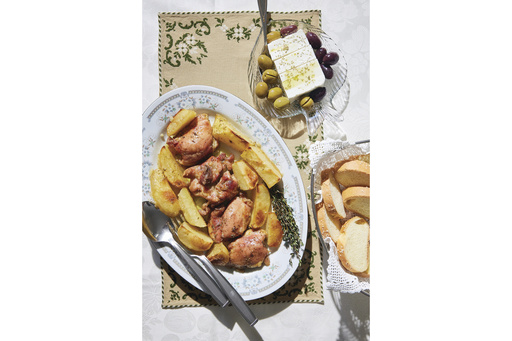
NEW YORK — Lisa Kyung Gross had her first taste of nostalgia when she attempted to replicate the Korean recipes her grandmother lovingly prepared during her childhood. However, she quickly realized that something was missing. “It’s often the smaller details, specific tips, and sensory-based clues that don’t appear in cookbooks or online tutorials,” she explained. Simple cues such as when to add ingredients or how to properly chop an onion were absent, making her culinary attempts feel incomplete.
Kyung Gross yearned for the personal touch that comes from learning directly from skilled individuals. She noted that the nuances of cooking are enriched when one learns in person—questions like whether to slice an onion lengthwise or widthwise depend on the context. “Learning from a person adds a profound layer of both personal and cultural significance to a recipe,” explained Kyung Gross, whose cultural background is a mix of Korean heritage and Jewish New Yorker upbringing.
Determined to foster this kind of culinary education, she established The League of Kitchens in 2014. This organization offers culinary workshops conducted by immigrant home cooks, accessible both online and in their kitchens. This fall, they are expanding their mission with the launch of a cookbook featuring 75 family recipes from various cultures, including traditions from Mexico, Indonesia, Bangladesh, and more.
The cookbook features a diverse array of recipes ranging from Slavic cold borscht to a Middle Eastern fava bean stew, a Bangladeshi omelet, and an African peanut butter stew with chicken. “While the preparation times vary, these are all approachable recipes meant for everyday home cooking,” Kyung Gross emphasized, sharing that she has personally tried each dish, receiving praise from her daughters, ages 7 and 10.
“The League of Kitchens Cookbook” focuses on accessible, nourishing meals rather than extravagant dishes that require hard-to-find ingredients. Kyung Gross explained the intent behind capturing everyday “peasant food” that families regularly enjoy. One Afghan instructor expressed surprise that her simple dish—eggs, tomato, garlic, chili, and mint—was worthy of documentation, to which Kyung Gross replied, “You wouldn’t know unless you’re from there.”
Meticulously curated with detailed instructions, the cookbook aims to guide readers through each step with clarity—repeating ingredient quantities and specifying preparation techniques—an approach that stands in contrast to many modern cookbooks which often condense instructions. According to Kyung Gross, “I find that while the intent to encourage improvisation sounds appealing, it can be confusing for those less experienced. Our aim is to ensure that home cooks can create dishes that mirror those of our instructors so that once they understand the process, they can then experiment.”
Jacqueline Quirk, who assisted in editing the book, used it as a means to connect with her Persian roots through the creation of rice tahdig, allowing for crispy bottoms. “This book has something for everyone, reflecting flavors that resonate with many cultural backgrounds,” Quirk remarked.
To compile recipes from the selected instructors, Kyung Gross engaged in live cooking sessions via Zoom where she would closely observe and document each cooking detail, even measuring portions as needed. “Cooking live allowed me to capture critical elements, like adjustments to heat levels, which should be noted,” she said. “We aimed to document every minute detail accurately.”
Food writer and co-author Rachel Wharton also reviewed recorded lessons multiple times to draft recipes, sending them to Kyung Gross for further cooking adjustments until each dish received final approval. Kyung Gross reflects on her regret for not learning cooking alongside her grandmother and considers her culinary network and new cookbook as a tribute to her legacy.
“Whenever I showed interest in helping her cook, she insisted that I focus on my studies instead. To her, cooking was an activity that kept someone tied to the kitchen,” Kyung Gross reminisced, acknowledging how her grandmother’s wishes steered her toward achieving higher education with degrees from Yale and Tufts.
The League of Kitchens not only teaches students how to prepare a dish—including complementary sides and sauces—but also seeks to humanize the immigrant experience through personal interactions. “Cooking in someone’s home fosters intimate connections that are often hard to achieve in other settings,” noted Kyung Gross.
As she described the atmosphere of the workshops, she pointed out, “Initially, participants often feel awkward when meeting someone new in a different neighborhood, but by the end, they’re embracing and exchanging contact information, feeling as if the instructors have become their cherished family members.”
